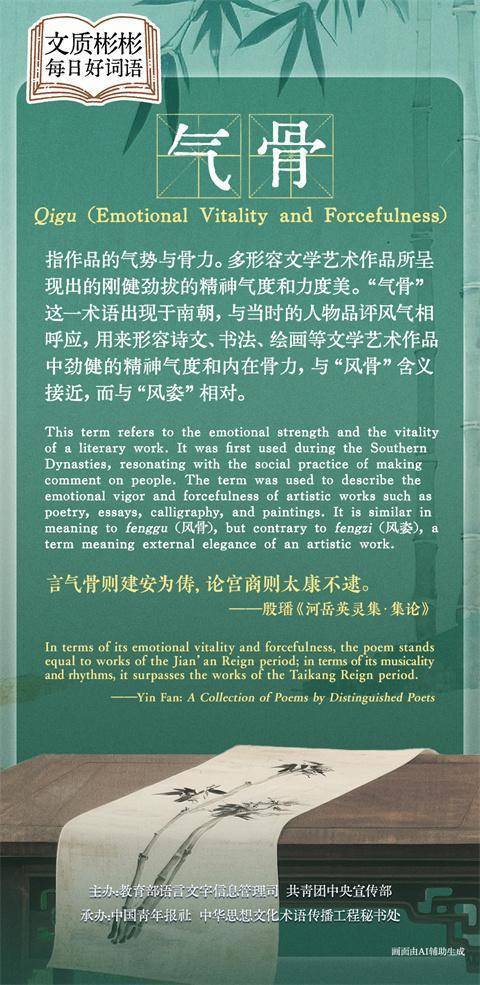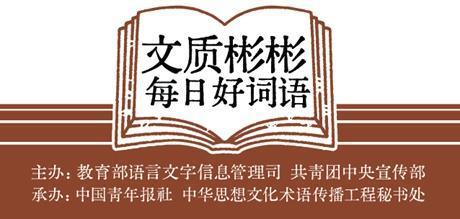开云体育(中国)官方网站与其时的东谈主物月旦习气相呼应-Kaiyun·体育(全站)登陆入口官方网站登录入口

气骨
指作品的声威与骨力。多面孔体裁艺术作品所呈现出的刚健劲拔的精心扉度和力度好意思。“气骨”这一术语出现于南朝,与其时的东谈主物月旦习气相呼应,用来面孔诗文、书道、绘图等体裁艺术作品中劲健的精心扉度和内在骨力,与“风骨”含义接近,而与“风度”相对。
Qigu (Emotional Vitality and Forcefulness)
This term refers to the emotional strength and the vitality of a literary work. It was first used during the Southern Dynasties, resonating with the social practice of making comment on people. The term was used to describe the emotional vigor and forcefulness of artistic works such as poetry, essays, calligraphy, and paintings. It is similar in meaning to fenggu, but contrary to fengzi, a term meaning external elegance of an artistic work.
引例
言气骨则建安为俦,论宫商则太康不逮。(殷璠《河岳英灵集·集论》)(论声威与骨力,能与建安时间的作品相比好意思;论音节与韵律,能跨越太康时间的作品。)
In terms of its emotional vitality and forcefulness, the poem stands equal to works of the Jian'an Reign period; in terms of its musicality and rhythms, it surpasses the works of the Taikang Reign period. (Yin Fan: A Collection of Poems by Distinguished Poets)

开始:中国后生报开云体育(中国)官方网站


